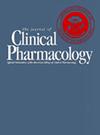A dangerous lack of pharmacology education in medical and nursing schools: A policy statement from the American College of Clinical Pharmacology.
IF 2.3
4区 医学
Q3 PHARMACOLOGY & PHARMACY
引用次数: 27
Abstract
Therapeutics in all subspecialties of medicine has become more complex in recent years for a variety of reasons. Newer pharmaceuticals with greater and potentially serious toxicities are commonly used today for a large number of serious illnesses. Such drugs often interact adversely with food and with many so-called “natural” medicines such as Saint. John’s wort. They may also interact with other drugs, such as those used to treat comorbidities that are outside of the realm of expertise of the physician treating the patient’s most serious problem. Many newer agents need to be given in precise doses based on the patient’s weight or body surface area, and somemust be taken in specific relationship to food intake. Drug dosing in many instances must take into account dietary components, administration of other drugs, and patient genetics. Consequently, correct prescribing of medicines today requires a complete knowledge of the pharmacokinetics, pharmacodynamics, drug–drug interactions, and other aspects of the agent to be prescribed. Unfortunately, there is abundant evidence in the form of prescription errors (paper and electronic) and increasing numbers of hospital admissions for drug toxicity in this country and many others that prescribers are not always sufficiently educated to properly administer and monitor present-day therapeutics. For physicians, nurses, and physician assistants, the lack of sufficient clinical pharmacologic training can often be traced all the way back to undergraduate school.医学和护理学校缺乏药理学教育的危险:美国临床药理学学院的政策声明。
本文章由计算机程序翻译,如有差异,请以英文原文为准。
求助全文
约1分钟内获得全文
求助全文
来源期刊
CiteScore
5.10
自引率
3.40%
发文量
176
审稿时长
2 months
期刊介绍:
The Journal of Clinical Pharmacology (JCP) is a Human Pharmacology journal designed to provide physicians, pharmacists, research scientists, regulatory scientists, drug developers and academic colleagues a forum to present research in all aspects of Clinical Pharmacology. This includes original research in pharmacokinetics, pharmacogenetics/pharmacogenomics, pharmacometrics, physiologic based pharmacokinetic modeling, drug interactions, therapeutic drug monitoring, regulatory sciences (including unique methods of data analysis), special population studies, drug development, pharmacovigilance, womens’ health, pediatric pharmacology, and pharmacodynamics. Additionally, JCP publishes review articles, commentaries and educational manuscripts. The Journal also serves as an instrument to disseminate Public Policy statements from the American College of Clinical Pharmacology.

 求助内容:
求助内容: 应助结果提醒方式:
应助结果提醒方式:


